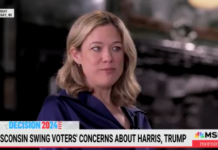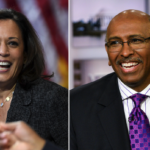The latest buzz in the literary world is all about the recent lawsuit between Sarah Silverman and other authors against OpenAI, the company behind the popular ChatGPT program.
If you’re not familiar with ChatGPT, it’s a large language model that can generate human-like answers and is being hailed as a powerful tool for automating tasks. However, the creators of this program have come into hot water with authors like Silverman, Richard Kadrey, Christopher Golden, and Paul Tremblay, who claim that OpenAI used their books without authorization to develop their language model.
So, what’s the latest update in this case?
Well, on Monday, a federal judge dismissed several of the claims made by the authors, including vicarious copyright infringement, negligence, and unjust enrichment. This is a significant setback for the plaintiffs, as these claims are the backbone of their case against OpenAI.
Vicarious copyright infringement refers to the use of copyrighted material that results in the creation of a new work. In this case, the authors allege that OpenAI used their books as the basis for their language model, and therefore, the outputs of the program are infringing on their copyright. However, the judge dismissed this claim, stating that the authors failed to prove that the outputs of ChatGPT were substantially similar to their books.
Similarly, the claims of creating and distributing derivative works were also dismissed, as the authors could not provide enough evidence to support this allegation. Additionally, claims of negligence and unjust enrichment were dismissed due to lack of proof.
Judge dismisses parts of a lawsuit brought by comedian Sarah Silverman, Michael Chabon, Ta-Nehisi Coates and other authors against OpenAI over its alleged use of their books to train the large language model underlying its popular chatbot ChatGPT. https://t.co/jUkerDUj8R
— NBC News (@NBCNews) February 14, 2024
The only claim that was upheld was the one for unfair competition. The judge ruled that if the authors’ allegations are true, which is that OpenAI used their copyrighted material to train their language model for commercial profit, then it could be considered an unfair practice.
So, why is this case important?
Well, it brings attention to a growing concern among creators and artists. With the rise of artificial intelligence and machine learning, the lines between fair use and copyright infringement are becoming increasingly blurred. As AI technology continues to advance, the need for more clarity and protection for content creators becomes more crucial.
But, as AI expert Marva Bailer points out, this case is just one of many that we can expect to see in the future. And for artists to win these legal battles, they will need to connect the dots, proving that they have lost income or opportunities due to the use of their copyrighted material.
The lawsuit between Silverman and other authors and OpenAI has hit a snag, but the authors have until March 13 to amend their complaint and continue with their claim for unfair competition. It will be interesting to see how this case unfolds and what implications it will have for the future of AI technology and creative rights.








